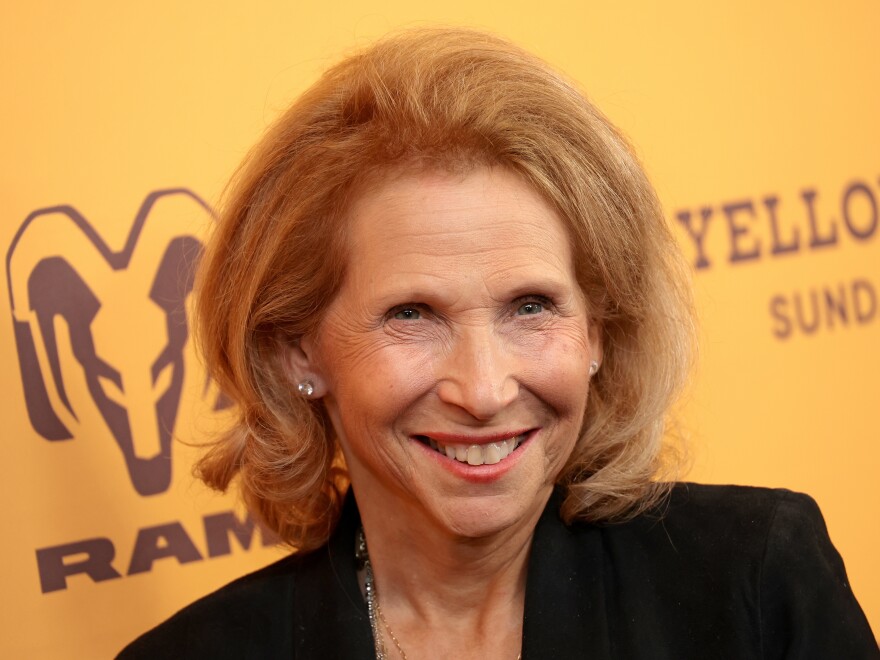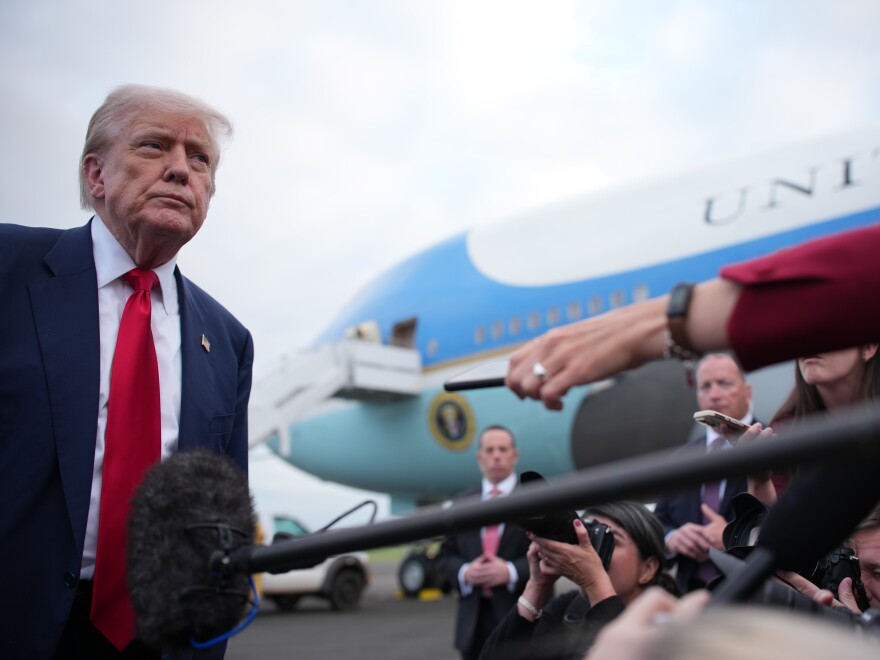Updated @ 3:02 PM EDT on July 25, 2025
The makers of the satirical television program South Park, Trey Parker and Matt Stone, said on Wednesday that they had reached a five-year, $1.5 billion streaming rights agreement with Paramount Global.
Parker and Stone’s long-awaited season premiere on Paramount’s Comedy Central channel that night criticized the network for canceling CBS’s The Late Show with Stephen Colbert, suggesting that the decision was made only to please President Trump, one of Colbert’s frequent adversaries. (A cartoon Trump is depicted in bed with Satan while nude in the episode. The portrayal is unappealing. It wasn’t meant to be, either.)
According to Paramount Global, Colbert’s cancellation, which will take effect in June of next year, was made purely for business reasons. However, it has happened in the midst of a rush of actions by Skydance Media and Paramount, who have been trying to buy the media company in order to curry favor with the Trump administration.
Federal authorities declared Thursday that they had voted in favor of the $8 billion merger.
Pledges to root out bias in news coverage, and more
Trump sued CBS and 60 Minutes as a private citizen, and Paramount paid $16 million to settle the case. David Ellison, the CEO of Skydance, pledged to abolish all Paramount’s US-based DEI initiatives and establish a new ombudsman to handle allegations of ideological bias in news reporting. Trump’s claims that the network will air $20 million worth of PSAs that align with his views have not been refuted by Skydance.
Brendan Carr, the chair of the Federal Communications Commission, referenced Skydance’s pledges to implement “significant changes in the once storied CBS broadcast network.”
“The traditional national news media are no longer trusted by Americans to provide fair, accurate, and comprehensive reporting. “A change is long overdue,” Carr stated in a statement. Specifically, Skydance has committed in writing to make sure that the new company’s programming represents a range of political and ideological perspectives. Additionally, Skydance will take action to eliminate the bias that has eroded public confidence in the country’s news industry.
Carr claimed victory over CBS’s termination of Colbert and other concessions, as well as the removal of federal financing from public media, on Fox News earlier in the day. “You’ve exposed the business model of a lot of these outfits as being nothing more than a partisan circus,” Carr said on Fox News. “All of this is downstream of President Trump’s decision to stand up.”
Paramount and Skydance chose not to comment.
“Skydance’s commitment to unbiased journalism and its embrace of diverse viewpoints, principles that will ensure CBS’s editorial decision-making reflects the varied ideological perspectives of American viewers,” Ellison met with Carr last week to emphasize, as his attorney subsequently wrote in informal filings.
Larry Ellison, the creator of Oracle and David Ellison’s father, is funding the purchase of Paramount, which includes, among other companies, Comedy Central, CBS, Nickelodeon, and Paramount Pictures. Shari Redstone had been in charge of it and sought to sell her share of her late father Sumner Redstone’s enormous media assets.
In the end, she informed colleagues that in a time when broadcast and cable are dying out, the company is too small to compete with the bigger digital behemoths, such as Netflix, Amazon, and Apple. According to people with information at Paramount and CBS who spoke on condition of anonymity because they were not permitted to discuss the deal, there was no backup plan.
“A chilling effect”
According to almost all reports from outside legal experts, Trump’s lawsuit, which CBS and Paramount resolved under Redstone, was extremely weak.
That was never the idea, according to Trump’s detractors.
“It’s primarily about exerting dominance and creating a chilling effect for other actors,” says constitutional expert Michael Dorf, a law professor at Cornell University. “It’s less that he gets the money, but that the defendants have to fork it over.”
He claims that media outlets will “think twice about putting on news that is adverse to the president’s perceived self-interest.”
Dorf cites the administration’s legal actions, lawsuits against law firms and universities, and lawsuits that Trump has filed as a private individual against other media corporations. He claims that on an individual basis, the settlements make sense, such as Columbia University’s decision to pay $221 million when billions are at stake in the long term. However, they subject others to the same types of pressure.
“What unites all of these cases is that either the administration or Trump personally has a very weak case against the person or entity he’s suing,” Dorf explains. “The more assets a target has, the more vulnerable they are.”
A bevy of legal settlements
Redstone’s proposal to sell the corporation needed FCC permission because it involved the transfer of over two dozen local stations, making CBS the pressure point for Trump.
According to Trump’s lawsuit, CBS News allegedly interfered in the election by presenting then-Vice President Kamala Harris’ response to a question regarding the Israel/Hamas conflict in two different ways on separate programs. When combined, the two programs gave viewers Harris’ full response; Trump’s legal team contended that the network had attempted to make her seem more logical than she actually was.
A Texas court with judges favorable to the president heard the lawsuit. A conservative public advocacy group filed complaints about the interview with CBS and its local stations, which the FCC reopened under Carr.
Earlier this year, the president of CBS News and Stations and the executive director of 60 Minutes both quit, stating that they were against a settlement, particularly if it included an apology. The deal did not include an apology from CBS.
The Walt Disney Co., the parent firm of ABC News, has already contributed $16 million for Trump’s potential presidential library and legal bills. In a court dispute, Trump had filed a lawsuit against anchor George Stephanopoulos for misrepresenting a jury’s verdict. There was a touch of remorse in that resolution.
Trump’s organization received $10 million and $25 million from social media behemoths X and Meta to settle lawsuits against them for removing him off their platforms after he declared victory over Joe Biden in the 2020 election. The federal government has multibillion-dollar contracts with Elon Musk of X, and federal agencies heavily regulate Mark Zuckerberg’s apps. Trump has indicated that he supports a modest approach to AI regulation, which is what both have been hoping for.
The only Democrat on the panel, FCC Commissioner Anna M. Gomez, criticized the agency’s decision to authorize the sale. She claimed in a written statement that it represented the ongoing decline of journalistic independence.
“After months of cowardly capitulation to this Administration, Paramount finally got what it wanted,” Gomez stated in a letter. “Unfortunately, it is the American public who will ultimately pay the price for its actions.”
“In an unprecedented move, this once-independent FCC used its vast power to pressure Paramount to broker a private legal settlement and further erode press freedom,” she stated. “Once more, by overstepping its bounds and getting involved in employment affairs that belong to other government agencies with the appropriate authorities, this agency is undercutting justifiable efforts to fight prejudice and increase opportunity. Even worse, it is now enforcing unprecedented controls over editorial judgment and newsroom decisions, which is a clear violation of both the law and the First Amendment.
Copyright 2025 NPR






